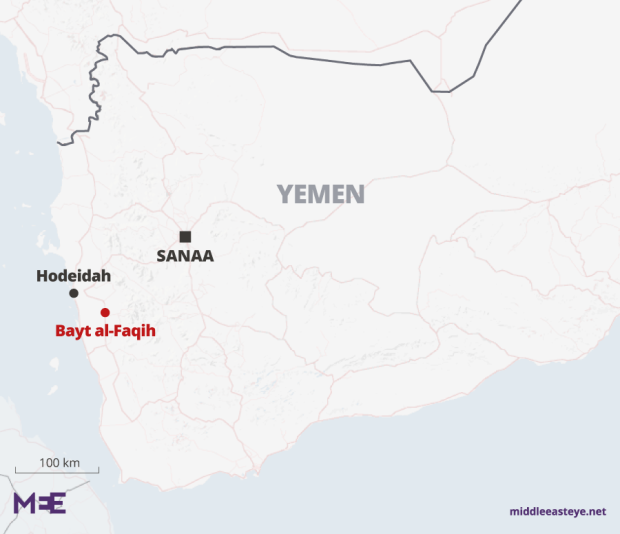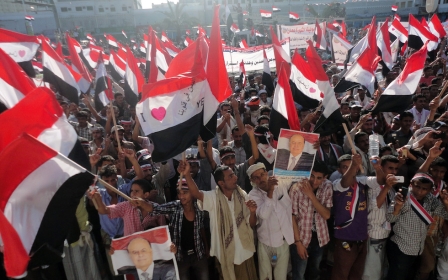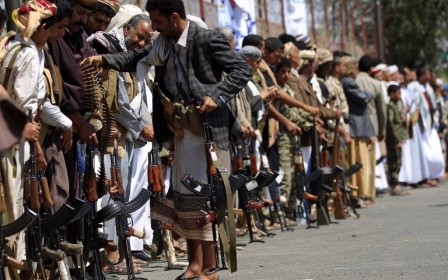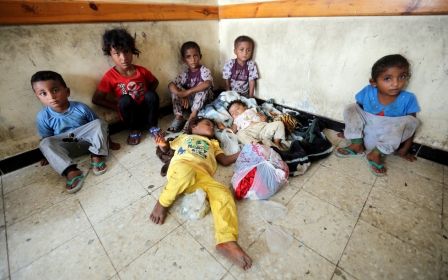Saudi-led coalition kills 21 in strike on Yemeni factory in residential area
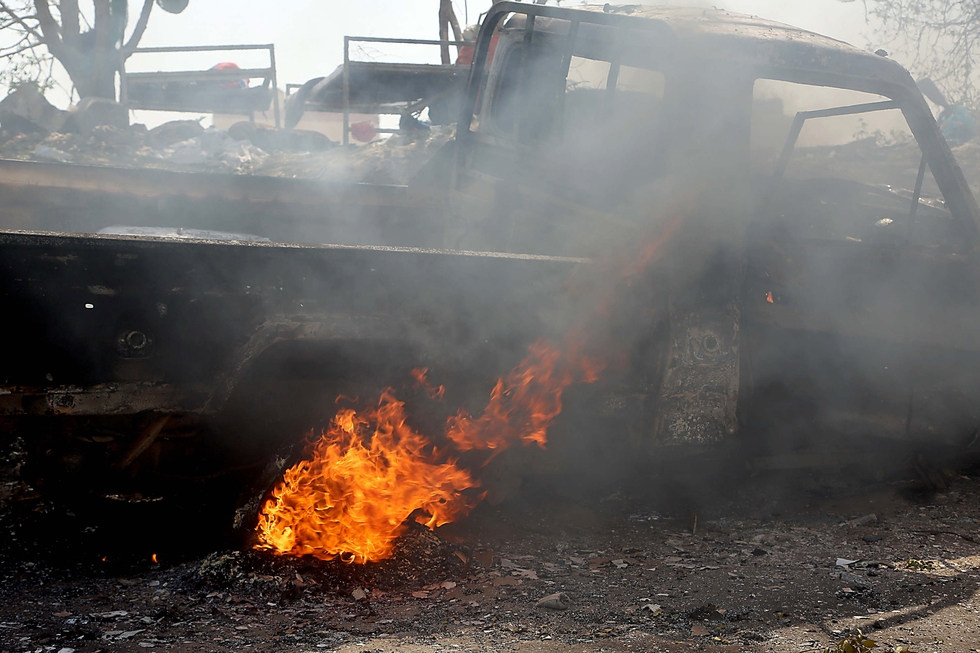
SANAA – A Saudi-led air strike on Wednesday evening hit a vegetable packaging factory in the residential area of a Hodeidah province town, killing 21 people and injuring 11 others, a health ministry source told Middle East Eye.
Around half of the people were killed instantly, the source said. The rest died because they were unable to access the necessary healthcare quick enough, with the closest hospital now a six-hour drive away as a result of road blocks that have been put in place by warring parties.
Most were factory workers or farmers who often go to the facility in Bayt al-Faqeeh town to prepare their crops for market in Hodeidah city, about 70km away, a resident told Middle East Eye.
"Al-Masoudi neighbourhood is 10km from Bayt al-Faqeeh town and it is a safe area, so farmers go to wash and package their vegetables and fruit there,” said Jameel, who works in one of the town's restaurants.
A source in the health ministry in Sanaa told MEE, on condition of anonymity because of security concerns, the factory was “far from battles” and none of those injured were Houthis.The ministry released a statement on Thursday morning, reported by local media, which condemned the targeting of civilians in the attack, saying it had “revealed the weakness of the United Nations and its inability to play any role even condemning the aggression of the Saudi-led coalition.”
Since intervening in the war in 2015, the Saudi-led coalition has conducted frequent air strikes which often hit civilians, although it denies doing so intentionally.
Coalition spokesman Colonel Turki al-Malki said on Thursday that it is investigating the incident.
"We take this report very seriously and it will be fully investigated, as all reports of this nature are, using an internationally approved, independent process," he said. “Whilst this is ongoing, it would be inappropriate to comment further."
Third attack in a week
It was the third coalition attack on the province in a week, but the biggest of the three, with a death toll expected to climb as 11 more wounded people are treated at hospitals in Hodeidah city, the health ministry source said.
"Specialised international health practitioners have fled the country, so injured people usually die as a result of the lack of healthcare,” the source said.
On Saturday, an air strike killed a civilian and injured four others in Zayed Street - named after the UAE founder Sheik Zayed bin Sultan Al Nahyan - in Hodeidah city.
Then on Wednesday morning, another coalition bombing which targeted a motorcyclist on 7 July Street in a residential area of Hodeidah killed three, including a child, and wounded six others, the ministry source and a resident said.
"Civilians are paying a shocking price because of this conflict," said Lise Grande, the UN's Humanitarian Coordinator for Yemen, referring to the latest attacks.
The strikes came as violent clashes erupted in the city’s southern outskirts where pro-government forces have been trying to advance towards the highly strategic Hodeidah seaport.
A Houthi military leader in Hodeidah told MEE: "There were no members of the Yemeni military or AnsarAllah [the Houthis] in the areas recently targeted by the aggressor's air strikes in Hodeidah city or in Bayt al-Faqeeh."
I hope that Saudis stop the war against Yemenis and let us enjoy life as people in the Gulf countries do
- Hadil Shukri, Hodeidah resident
Hadil Shukri, who lives in Hodeidah, told MEE that warplanes have been hovering over the city since Wednesday morning, scaring residents.
"When we heard the air strike on 7 July Street, we resorted to staying in the basement of the house, and we have heard other air strikes but I do not know where they attacked,” she said.
Shukri appealed to the Saudi-led coalition to take the lives of civilians into greater consideration as they bomb her city.
"I am 34 years old and people my age work and think about their future, but we only think how to stay far from the air strikes,” she said.
"I hope that Saudis stop the war against Yemenis and let us enjoy life as people in the Gulf countries do. I think this is a basic right of Yemenis that war has deprived us from.”
In Bayt al-Faqeeh, Jameel said some people have fled the area for safer provinces, but most have stayed, even as life worsens in the city.
"The closure of the main road between Bayt al-Faqeeh and Hodeidah in June has been worsening our life because we cannot arrive to the hospitals in Hodeidah city easily and farmers cannot go to sell their vegetables,” he said.
"Death became a normal thing in Bayt al-Faqeeh, we cannot escape because air strikes target civilians either in conflict zones or in peaceful areas.”
New MEE newsletter: Jerusalem Dispatch
Sign up to get the latest insights and analysis on Israel-Palestine, alongside Turkey Unpacked and other MEE newsletters
Middle East Eye delivers independent and unrivalled coverage and analysis of the Middle East, North Africa and beyond. To learn more about republishing this content and the associated fees, please fill out this form. More about MEE can be found here.


